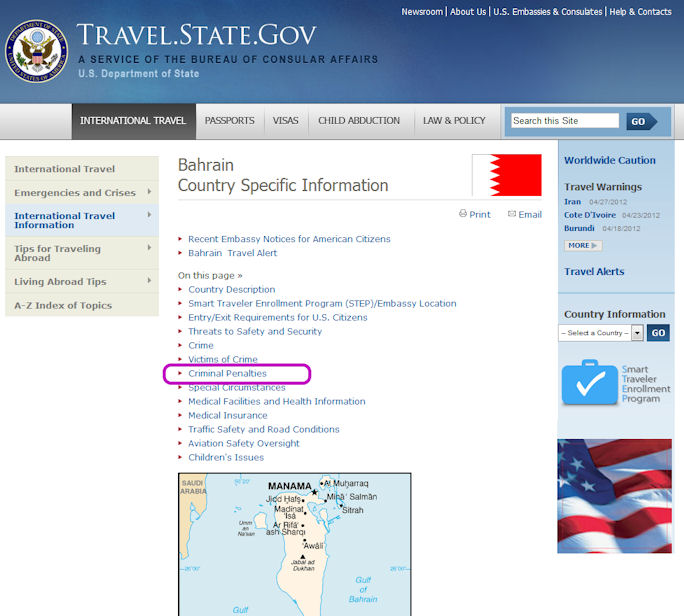The Number 1 Way to Avoid Getting Arrested Overseas
12 May 2012
According to the U.S. Department of State, more than 2,500 Americans are arrested abroad every year – over 30% of those arrests are drug-related.
It shouldn’t come as a surprise, but U.S. travelers visiting a foreign country are subject to that country’s laws, which often differ significantly from those back home. U.S. citizens are not afforded the same protections available under U.S. law in a foreign country, and those who do violate the laws in a foreign country may be arrested, fined, imprisoned, and even expelled from the country.
If a U.S. citizen is arrested abroad, he or she must go through the legal process defined in that country and there’s very little the U.S. government can do to help. Here’s what the U.S. government can do for Americans who get in trouble with the law in a foreign country:
- They can insist on prompt access to the arrested individual
- They can provide information on the foreign country’s legal system
- They can provide a list of attorneys
- They can contact the arrested individual’s family and friends
- They can protest mistreatment, monitor jail conditions, and provide dietary supplements
- They can keep the Department of State informed as to the individual’s situation
Doesn’t sound like much? Well, it isn’t, but that’s the law.
So, how does a traveler best avoid getting arrested overseas?
Know the Local Laws where you are Traveling
Before traveling overseas, check the facts about the country you are visiting provided by the State Department’s Bureau of Consular Affairs. Select the country’s name and you’ll get loads of information about current security issues, crime stats, medical insurance information, traffic safety and more.
As an example, the U.S. State Department recently issued a travel alert for Bahrain. When we select Bahrain from the list of countries, we see a list of informative links:
Notice, we circled the Criminal Penalties topic. When we review the information about criminal penalties for U.S. citizens traveling in Bahrain, we learn some interesting (and slightly terrifying) facts:
- In some places, it’s illegal to take pictures of certain buildings.
- Driving under the influence can land you immediately in jail.
- Penalties for possessing, using, and selling illegal drugs are severe.
- Vulgar language and some hand gestures can result in criminal charges and fines.
- Public drunkenness can result in arrest and a single alcoholic drink may be sufficient grounds for drunk driving arrest.
Of course, criminal penalties vary from country to country, but what’s legal and illegal in the United States is not relevant in a foreign country and your U.S. passport won’t help you avoid arrest, detention, prosecution and imprisonment if you break the local laws.
Damian Tysdal is the founder of CoverTrip, and is a licensed agent for travel insurance (MA 1883287). He believes travel insurance should be easier to understand, and started the first travel insurance blog in 2006.

